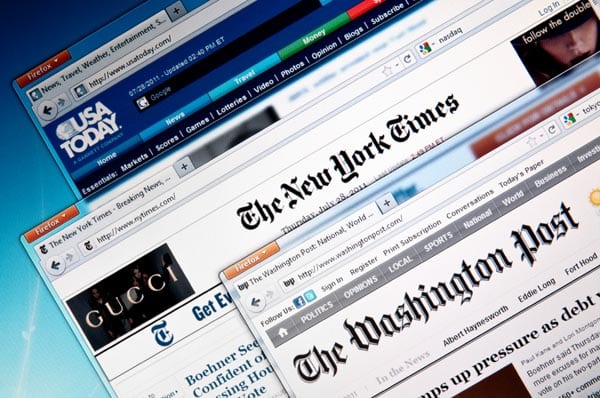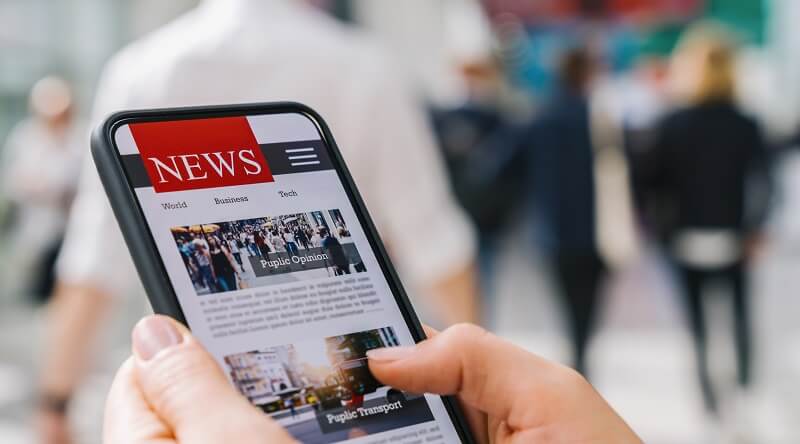Best Tips for Making the Most of stnews.live
The Importance of Fact-Checking worldwide of News Online
The prevalence of misinformation in today's online news landscape has gotten to alarming levels. Fact-checking organizations play a necessary duty in combating this fad. They validate cases and enhance the integrity of journalism. Nevertheless, the performance of these companies often depends upon their methodologies and public understanding. As audiences navigate this complex environment, the effects of their findings may form the future of news intake and trust fund. What does this mean for the honesty of info progressing?

The Rise of False Information in the Digital Age
Just how has the advent of electronic technology added to the spread of misinformation? The quick development of the web and social media systems has facilitated the circulation of info at an unprecedented speed. Customers can share posts, video clips, and viewpoints with a simple click, frequently without validating the content's precision. Algorithms prioritize mind-blowing or emotionally billed material, causing an expansion of misleading narratives that catch attention.
In addition, the privacy paid for by electronic platforms permits people to spread false info without accountability (stnews.live). Misinformation grows in echo chambers, where individuals are revealed mainly to point of views that enhance their ideas, even more lodging frauds. The saturation of details can bewilder individuals, making it testing to determine trustworthy sources from undependable ones. False information has actually come to be a pervasive problem in the digital landscape, influencing public opinion and count on in legit news sources.
The Duty of Fact-Checking Organizations
Fact-checking companies play an important duty in boosting the reputation of journalism by confirming claims made in report. Their efforts are essential in combating misinformation, guaranteeing that exact info dominates in the electronic landscape. By holding media outlets responsible, these organizations contribute considerably to educated public discourse.
Enhancing Credibility in Journalism
While false information multiplies in the electronic age, fact-checking companies play a vital duty in improving the credibility of journalism. These companies carefully verify claims made in news short articles, public declarations, and social media sites articles, guaranteeing that details disseminated to the general public is accurate and trustworthy. By supplying independent analyses, they work as a vital source for journalists, helping them keep high requirements of stability. In enhancement, their initiatives advertise transparency in media, cultivating public depend on. As audiences end up being progressively discerning, the presence of respectable fact-checking entities can distinguish reputable news sources from those that might spread falsehoods. Eventually, the dedication of fact-checking companies to promote reliability is crucial for the health and wellness of democratic discussion.
Combating False Information Effectively
As false information proceeds to spread out swiftly across electronic systems, the role of fact-checking companies comes to be significantly vital in the battle for precise info. These companies serve as watchdogs, inspecting insurance claims made by somebodies and media outlets to guarantee responsibility. By using rigorous research study techniques and specialist evaluation, they verify facts and clarify misleading narratives. Their findings are distributed via various channels, educating the public and cultivating critical reasoning. In enhancement, partnerships with social networks systems boost their reach, permitting timely flagging of false details. As electronic proficiency expands, the impact of fact-checking companies is important in equipping audiences to discern truth from falsehood, eventually adding to an extra informed society.
Just How Misinformation Affects Public Assumption
False information greatly undermines count on media, leading target markets to wonder about the reliability of news sources. Therefore, individuals often move in the direction of electrical outlets that enhance their present ideas, adding to the polarization of opinions. This vibrant produces a fragmented information landscape, where shared comprehending ends up being progressively challenging to achieve.
Rely on Media

Rely on media has come to be significantly delicate in the electronic age, where the rapid spread of incorrect info can skew public assumption. As false information multiplies throughout social media and on-line platforms, audiences usually locate it challenging to recognize reputable resources from undependable ones. This unpredictability promotes suspicion, leading many individuals to examine the intentions behind news reporting. Count on in established media electrical outlets has lessened, as consumers progressively turn to alternate sources that might lack extensive content criteria. This erosion of trust fund not only influences individual beliefs yet also weakens the collective capacity to engage in informed conversations. Eventually, the stability of journalism is at risk, highlighting the vital need for effective fact-checking to bring back self-confidence in the media landscape.

Polarization of Viewpoints
The raising suspicion toward standard media has added to an expanding polarization of viewpoints amongst the public. False information, typically distributed with social networks and on the internet systems, plays a significant role fit distinctive ideological separates. People regularly seek details that lines up with their pre-existing beliefs, reinforcing their viewpoints while dismissing opposing viewpoints. This echo chamber result escalates departments, causing a fragmented public discussion where consensus becomes progressively evasive. Additionally, sensationalized narratives thrive in this setting, further skewing public assumption and cultivating distrust in reputable resources. As polarization intensifies, the necessity for effective fact-checking link ends up being extremely important to connect gaps and advertise informed discussions, inevitably making sure a more natural culture efficient in maneuvering intricate problems.
Techniques for Efficient Fact-Checking
Effective fact-checking depends on a systematic technique that consists of thorough research, confirmation of resources, and important evaluation of cases. A foundational technique is cross-referencing info from multiple qualified sources to confirm its precision. Fact-checkers often use specialized data sources and archives to trace the beginning of particular statements, making sure that the reported info lines up with recorded evidence.
One more vital approach involves inspecting the context in which Bonuses cases exist. Deceptive info can emerge from out-of-context quotes or selective data usage. By taking a look at the broader narrative, fact-checkers can determine possible prejudices or misconceptions.
Moreover, involving with specialists in appropriate areas can supply clarity and insight that boosts the fact-checking procedure. This collaboration can reveal nuances that laypeople might overlook - stnews.live. Eventually, a disciplined strategy combining these methods promotes a much more informed public, improving the integrity of info distributed in the electronic age
The Effect of Social Network on News Usage
Exactly how has social media sites changed the method individuals consume news? The appearance of platforms like Facebook, Twitter, and Instagram has especially transformed news usage patterns. News is currently distributed quickly, permitting customers to gain access to real-time updates and involve with web content via likes, shares, and comments. This immediacy has promoted a preference for bite-sized information, typically at the cost of thorough analysis.
In addition, social media sites enables individualized news feeds, where formulas curate material based upon customer preferences, developing resemble chambers that may restrict exposure to varied point of views. The role of standard news outlets has actually decreased as people progressively rely upon peer recommendations and trending topics. The reputation of details is commonly compromised, as sensationalism can eclipse valid reporting. On the whole, social media sites has reshaped news intake, emphasizing speed and customization while testing the criteria of journalistic stability.
Equipping Audiences to Identify Trustworthy Resources

Furthermore, checking out the authorship and organizational background of newspaper article can disclose prospective prejudices. Cross-referencing information across numerous trustworthy electrical outlets even more improves the verification process. Making use of digital devices, such as browser extensions that rank the reputation of websites, can likewise aid in recognizing trustworthy info. By proactively engaging with these sources and cultivating a crucial way of thinking, target markets can much better equip themselves to discern reputable news resources, eventually cultivating a more enlightened society amidst the complexities these days's media setting.
The Future of Journalism and Fact-Checking
As the media landscape progresses, the future of journalism and fact-checking encounters both tests and chances. The increase of digital platforms has democratized details circulation, allowing diverse voices to arise. However, this has actually likewise brought about the proliferation of misinformation, demanding durable fact-checking devices. Reporters will progressively rely upon modern technology, consisting of AI tools, to validate truths rapidly and successfully.
Cooperation between news organizations and fact-checking entities is expected to strengthen integrity and openness. Audience engagement will play a vital role, as informed readers become considerable companions in identifying reliable material.
The need for accountability and precision is most likely to expand, pushing reporters to copyright high criteria in their coverage. Inevitably, the future of journalism may rest on its capacity to adjust to technical developments while keeping journalistic stability, guaranteeing that fact-checking stays a cornerstone of legitimate news.
Often Asked Inquiries
How Can I Report Misinformation I Experience Online?
To report false information encountered online, people can use platform-specific coverage tools, offer clear evidence, and share the info with fact-checking companies. Involving with community conversations can also assist elevate recognition concerning the misinformation.
What Are Typical Signs of Misinformation in News Articles?
Usual indications of misinformation in newspaper article consist of marvelous headings, absence of trustworthy sources, psychological language, irregular realities, and absence of writer credentials. Visitors ought to seriously evaluate web content for these signs to recognize precision.
Just How Do Fact-Checkers Verify Resources?
Fact-checkers validate resources by cross-referencing information with reliable databases, getting in touch with professionals, and taking a look at the initial context of cases. They additionally examine the dependability of the sources, making certain exact and trustworthy info for public consumption.
What Legal Activities Can Be Taken Versus Misinformation?
Lawsuits against false information might consist of disparagement lawsuits, cease-and-desist orders, and regulative charges. Victims can look for remedy through civil courts, while some jurisdictions enforce fines or sanctions on platforms disseminating incorrect details.
Exist Apps for Fact-Checking News On-The-Go?
Countless apps exist for fact-checking news on-the-go, including Snopes, FactCheck.org, and PolitiFact. These applications help users confirm insurance claims swiftly, promoting informed decision-making and cultivating an extra critical approach to consuming news in real-time.